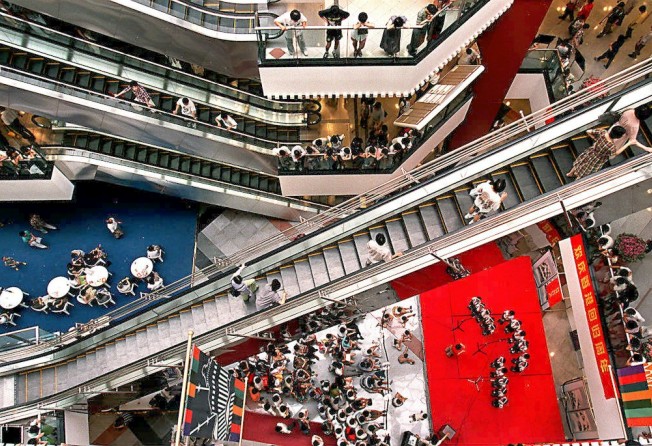
China’s shopping mall operators struggle against e-commerce, consolidation in works

China’s accelerating slowdown has put shopping mall operators already struggling to fight off the inroads of e-commerce under the gun. But not all is doom and gloom as a wave of consolidation may allow some to thrive.
"The supply of mall space in China is outpacing demand, as growth in retail sales slows because of the country’s lower GDP growth, and in cities where mall space is abundant, vacancy rates have risen substantially," Marie Lam, an associate managing director with ratings agency Moody’s, said in a report.
A raft of figures pointed to waning demand at home. China’s retail sales for the first half of the year grew by just 10.4 per cent from a year earlier, the lowest rate since 2004, data released by the National Bureau of Statistics showed.
Although acknowledging that the outlook will continue to be murky for China’s traditional retailers, Bank of China International analysts led by Tang Jiarui noted consolidation may sweep across some of the major players in the sector, discarding the weak players and leaving the stronger ones as the survivors. “The distress, on the other hand, may give birth to a mergers-and-acquisitions boom. We see some of the leading regional shopping mall operators, including Wuhan-based Zhongbai Holdings, the potential buying targets of industrial powerhouses eyeing expansion,” she said.
Unfazed by a flagging economy, Chinese developers’ headlong rush to branch out and build more shopping malls show no signs of dying down.
China made up of 44 per cent of total global shopping mall completions in 2014, data from real estate consultancy CBRE said. The amount of mall-space in the pipeline is even more massive, representing 60 per cent of the total worldwide.
In 2014, the retail space under construction in China soared by more than 50 per cent year-on-year, compared with a 21.8 per cent rise of the global total for the same period.
"Demand for mall space from retailers in China is not catching up with supply," Lam said.

A study by Fung Business Intelligence Centre found department stores in China were the worst performers among all retail formats last year with many forced to close shop.
"Fragile global and domestic economies …competition from speciality stores and online retailers were major reasons for stores’ weak performances," the Fung report said.
Many of traditional retailers have been shifting to asset-light business models or exploring the online-to-offline business mode to get by.
But a transformation can be painful for any company with more uncertainty the rule going forward.
“Success also depends on whether the changed mall can differentiate itself from other malls that have also undergone facelifts,” said Lam, who saw rising difficulty for some shopping mall property developers in refinancing the loans they took out to shift gears.